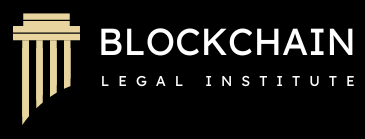Per the S.E.C. website: The SEC enforces the securities laws to protect the more than 66 million American households that have turned to the securities markets to invest in their futures—whether it’s starting a family, sending kids to college, saving for retirement or attaining other financial goals.
The U.S. Securities and Exchange Commission (SEC) plays a significant legal role in the regulation and oversight of various aspects related to blockchain, digital assets, Bitcoin, tokens and other related topics. Here are the key legal roles and responsibilities of the SEC in these areas:
Securities Regulation:
- One of the primary roles of the SEC is to regulate securities offerings and transactions. This includes Initial Coin Offerings (ICOs) and Security Token Offerings (STOs) in the blockchain and digital asset space.
- The SEC assesses whether tokens or digital assets are considered securities under U.S. federal securities laws. If a digital asset is deemed a security, it must comply with securities regulations, including registration or exemption requirements.
Investor Protection:
- The SEC aims to protect investors from fraudulent or deceptive practices in the blockchain and cryptocurrency markets. It issues warnings and takes enforcement actions against individuals and entities engaged in fraudulent ICOs, Ponzi schemes, or other illicit activities.
Market Surveillance:
- The SEC monitors the digital asset markets to detect and investigate market manipulation, insider trading, and other unlawful activities that could harm investors or disrupt market integrity.
Enforcement Actions:
- The SEC has the authority to take legal actions against individuals, companies, or platforms that violate federal securities laws in the blockchain and digital asset space. This includes issuing cease-and-desist orders, fines, and civil penalties.
Regulation of Exchanges:
- The SEC has regulatory authority over cryptocurrency exchanges operating in the United States. Exchanges that offer trading in digital assets deemed securities must register with the SEC or seek an exemption.
Disclosure Requirements:
- Companies and projects involved in the blockchain space are required to provide accurate and transparent disclosures to investors. This includes disclosing risks associated with investments in digital assets and blockchain technologies.
Educational Initiatives:
- The SEC engages in educational initiatives to inform investors about the risks and benefits of investing in digital assets and blockchain technologies. It publishes guidance and investor alerts to provide clarity in this evolving space.
Rulemaking and Guidance:
- The SEC issues rules and guidance related to digital assets and blockchain technology. This includes providing interpretations of existing securities laws as they apply to this emerging technology.
International Cooperation:
- Given the global nature of blockchain and digital assets, the SEC cooperates with international regulatory bodies and organizations to address cross-border issues and promote international regulatory consistency.
It’s important to note that the SEC’s approach to blockchain and digital asset regulation is evolving as the technology and market dynamics change. The legal role of the SEC in this space is aimed at fostering innovation while maintaining investor protection and market integrity. Companies and individuals operating in the blockchain and digital asset ecosystem should closely monitor SEC developments and seek legal counsel to ensure compliance with applicable regulations.
Several U.S. administrative agencies have been actively involved in making decisions and taking enforcement actions regarding blockchain, Bitcoin, Ethereum, non-fungible tokens (NFTs), and digital assets. These actions reflect the growing complexity and importance of digital assets in the financial sector.
Securities and Exchange Commission (SEC)
- Action Against “Profile Picture” NFT Project: The SEC brought an enforcement action against the creators of the “Stoner Cats” NFT project, involving individualized tokens meant for use as social media profile pictures. This case included a cease-and-desist order and monetary fines, settled without admission of wrongdoing by the project creators
- LBRY Case: LBRY, Inc. filed a notice of appeal against a summary judgment entered in July 2023. The case involved LBRY’s development of a Web3 version of YouTube, where tokens were used for uploading and accessing videos. The court disagreed with LBRY’s argument that security laws did not apply to assets purchased primarily for use or consumption, thus classifying the tokens as securities
These actions and decisions by U.S. administrative agencies demonstrate an evolving regulatory landscape for digital assets, balancing the need for innovation with the requirement for consumer protection and market stability.
